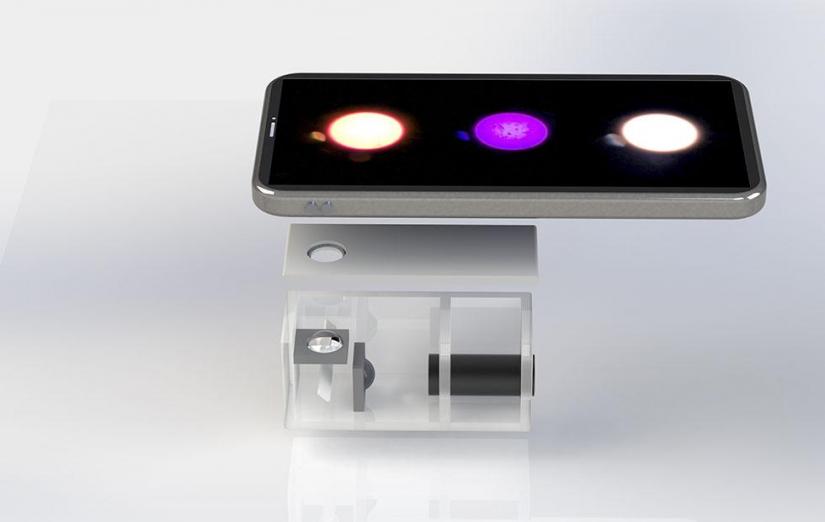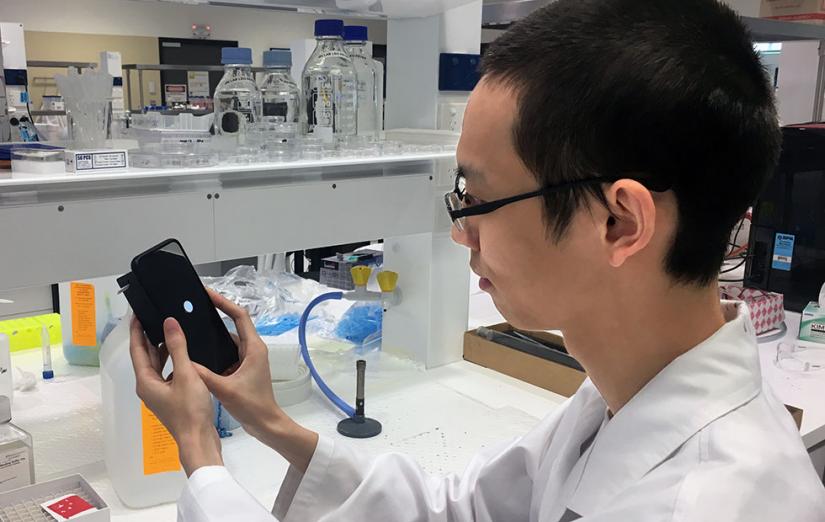In summary:
- UTS scientists have harnessed smart phone technology for a prototype hand-held device to detect the very early stages of common diseases such as prostate cancer
- In research published in the journal Analytical Chemistry, the team from the UTS Institute of Biomedical Materials & Devices reports that the prototype can be as sensitive as large, complex and expensive instruments in the pathology laboratory

Low cost, easy to use devices attached to a mobile phone could be the future of early cancer diagnosis.
A low cost, easy to use device, designed to be attached to a smart phone, demonstrates that detecting the very early stages of common diseases such as prostate cancer could be as simple as taking a picture.
Scientists from the UTS Institute of Biomedical Materials & Devices (IBMD) have developed a prototype that is not only sensitive enough to detect traces of cancer biomarkers but can quantify the level of these disease-indicating molecules, so that doctors can use this device to monitor a patient’s recovery from surgery and treatment.
"People are very familiar with the pregnancy testing sticks that use lateral flow strips. They are low cost and simple to use. However this type of technology usually suggests 'yes/no', and occasionally a 'maybe', and doesn’t have the sensitivity needed for cancer diagnostics," IBMD PhD candidate, and first author of research published in the journal Analytical Chemistry, Hao He says.
"This research shows that our small hand-held device can be as sensitive as large, complex and expensive instruments in the pathology laboratory," He says.
Read the full story at the UTS Newsroom.

Hao He with the prototype. Picture by Marea Martlew

